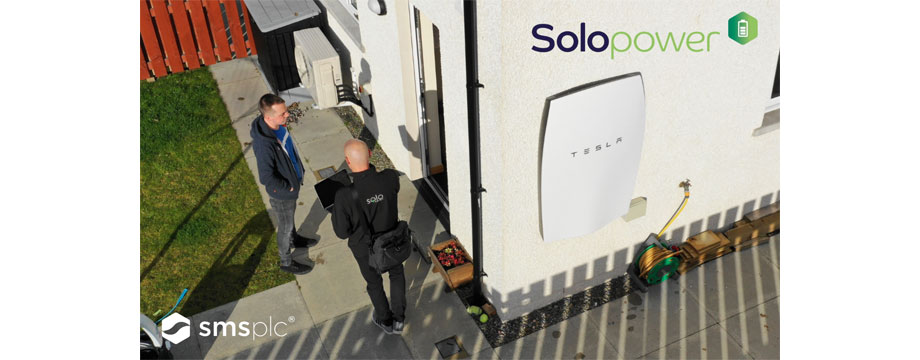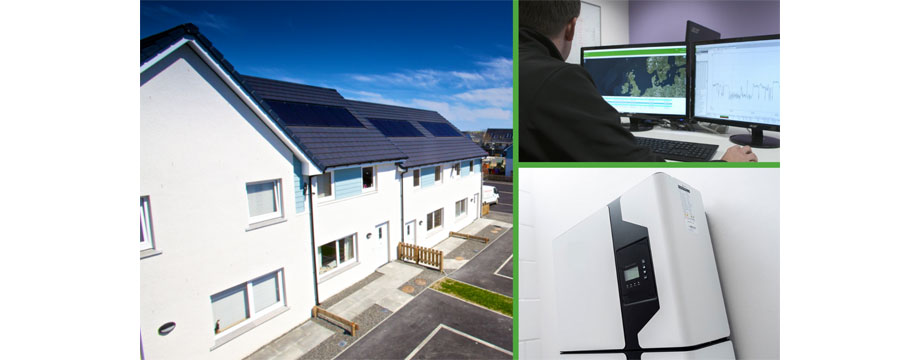By partnering with social housing landlords to deliver a fully-financed and intelligently operated solar PV and battery storage solution, Solopower aims to support local authorities in reaching their net zero and fuel poverty targets.
Addressing the existential threat of climate change is unquestionably the major driver for decarbonisation efforts globally and is consequently something the whole of society can recognise and rally behind. However, as social housing landlords are all too aware, there is another important stimulus for carbon reduction that is seldom talked about in comparison: the growing issue of fuel poverty.
A quick glance at national fuel poverty statistics provides immediate cause for alarm. In England and Wales, roughly 10% of households today cannot afford to pay their energy bills, whilst in Scotland this rises to 25% of homes. These figures are expected to have worsened further still this winter, with rises in unemployment and energy consumption due to pandemic lockdown restrictions.
It is within this context – particularly since Government announced its ambition in 2019 to reach net-zero carbon emissions by 2050 – that tackling fuel poverty has taken on a renewed focus, with the country’s social housing landlords remaining very much at the forefront of the issue.

Sustainability vs Affordability
As we are currently seeing in the energy market, the huge national investment required to transition to a low-carbon energy system provides a paradoxical counterweight to the many local authority efforts currently being made to alleviate fuel poverty. Whilst decarbonisation will ultimately contribute to affordability in the long term through securing a cleaner and more sustainable supply of electricity, the ever increasing amount of renewable generation coming online is driving up grid maintenance and upgrade costs in the meantime, and therefore pushing up the price for end consumers.
Therein lies the rub when it comes to enhancing the sustainability of our energy system in a way that does not exacerbate the issue of affordability in the process. Approached resourcefully, however, and the drive for net-zero carbon emissions provides government, the energy industry and local housing authorities a win-win opportunity to address climate change and fuel poverty together.
Technology (and finance) key to unlocking affordability
As the Committee on Fuel Poverty report recently outlined, the UK’s fuel poverty strategy needs to shift from improving energy efficiency levels at the lowest cost, to one that also focuses on ‘future-proofing properties so that they can easily be adapted to become the low-carbon homes of the future’.
With our mission to deliver the future of smart energy, our aim at SMS is to aid local councils and housing associations with this joint public and private sector challenge. Through our technology-led and fully-financed green energy solution, Solopower, we have already begun to make this concept a reality in conjunction with local authorities in Scotland, where we are engaged to operate distributed green energy assets across 700 houses. This includes the 100-home partnership we have with Aberdeen City Council as part of the Government’s Social Housing Decarbonisation Fund Demonstrator, and our work with Orkney Islands Council on the ground-breaking ReFLEX Orkney project.
This is being achieved through our asset financing and installation expertise in tandem with our FlexiGrid™ aggregation platform, which we use to remotely control distributed, solar PV and battery storage assets installed at each individual property. The goal of this is to create efficient, decentralised smart energy systems which better integrate and balance local renewable generation, ultimately helping contribute to the housing authority’s net-zero targets and lowering electricity costs for tenants.

Solopower: the smart solar + battery storage solution for social landlords
Whilst the concept of how we achieve decarbonisation through Solopower is simple to comprehend, the cost-saving element takes a little more explanation.
Firstly, we are able to work with local housing authorities to design and install a Solar + Storage scheme for new and existing housing stock, providing a fully-financed solution for the complete project to ensure there’s no up-front cost to the landlord or tenants.
Once installed, we control batteries remotely via FlexiGrid™ to remove the dilemma of tenant behaviour change and therefore maximise self-consumption of onsite solar generation. This energy is supplied to the tenant at a lower cost (typically 20-30% lower) than grid-supplied energy through a solar PPA agreement with the landlord, delivering immediate savings.
FlexiGrid™ can also control the battery to charge from the grid during off-peak ‘smart tariff’ periods, thereby delivering further savings to the tenant. The combination of solar PPA payments and grid trading allows us to recover our investment while delivering up to 25% electricity bill savings (c.£200 pa compared to standard tariffs) to the resident, and up to 90% decarbonisation of electricity supply per home across the housing stock.
Solopower is a solution that can be scaled up and implemented across the UK’s local council and housing association jurisdictions, holding huge potential not only to reduce carbon footprint across the housing stock and meet net-zero targets, but also help landlords alleviate fuel poverty through reducing tenant bills and improving EPC ratings.
This is something we care deeply about at SMS. After all, the creation of a more sustainable energy system is something we feel should be accessible and affordable for all in society.
If you are interested in SMS’s Solopower solution, available exclusively for social housing landlords, visit the website here, where you can read more information including a downloadable brochure and FAQs. You can contact the Solopower team directly at solopower@sms-plc.com
About SMS
SMS [sms-plc.com] funds, installs, operates, and manages smart meters and clean technology assets, including solar generation and battery storage systems, which together facilitate a smarter, greener, and more affordable energy system. Established in 1995, SMS additionally provides strategic energy and carbon reduction consultancy services to public sector organisations, enabling them to enhance long-term sustainability and reach net-zero carbon emissions. SMS is currently a partner in numerous UK Research & Innovation (UKRI) net-zero demonstration projects, including the installation of kerbside EV charge points nationally for 15 local authorities, and the creation of a self-sustainable, smart energy island in Orkney, Scotland. SMS, whose shares are listed on AIM, had installed 3.81 million meter, energy, and data assets as of 31 December 2020. The company is headquartered in Glasgow with 12 locations across the UK and Ireland and employs more than 1,000 people.
- Log in to post comments















